Biotin (vitamin B8 - B7 or H): its benefits after a hair transplant
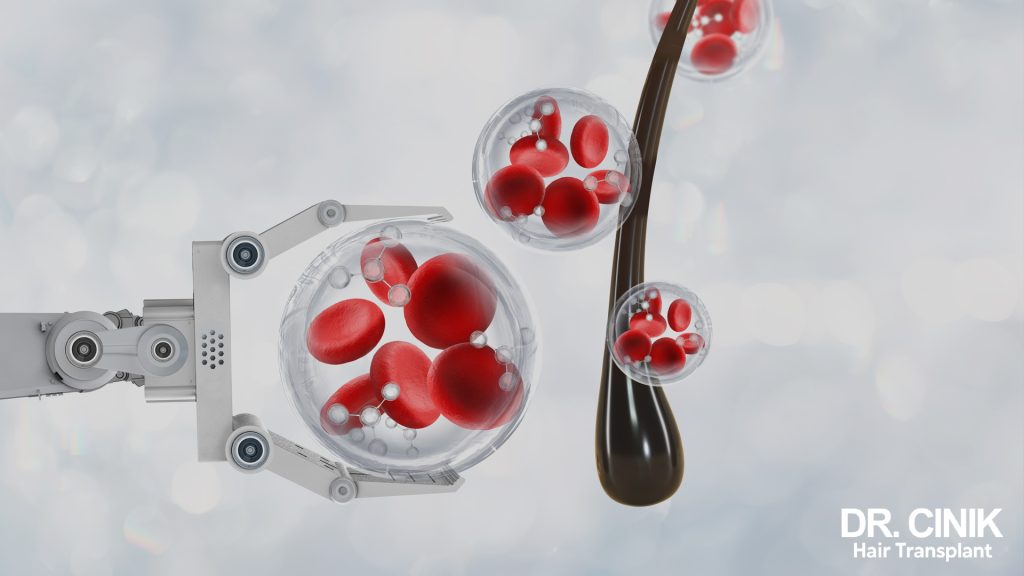
Sommaire
Biotin, commonly referred to as vitamin B8, B7 or H is often cited for its key role in maintaining healthy, robust hair, making it particularly interesting in post-hair transplant care. Recognised for its beneficial action on fatty acid metabolism, it is essential for cell growth and can help improve hair quality by promoting regrowth. Discover the multiple benefits of biotin as a therapeutic supplement following a hair transplant and how it can improve the condition and appearance of transplanted hair.
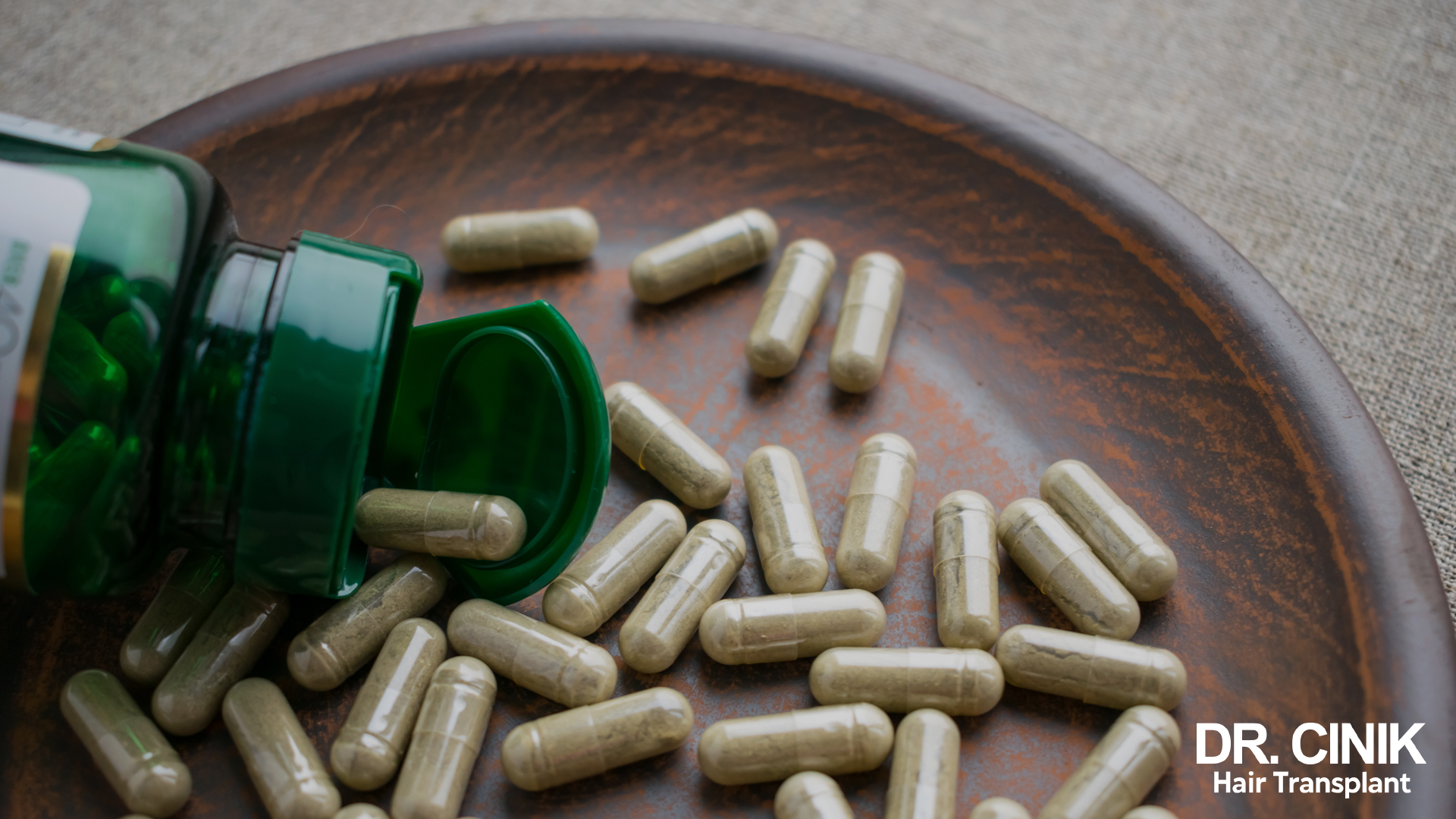
What is biotin?
Biotin, also known as vitamin B8, B7 or vitamin H, is a crucial component of the B vitamin complex. It is water-soluble, meaning it is soluble in water and is not stored in large quantities in the human body; therefore, it must be consumed regularly through diet or supplements.
As a coenzyme, biotin is involved in many essential metabolic reactions. In the specific context of hair growth, biotin is recognised for its involvement in the production of keratin, the protein that makes up most of the hair shaft.
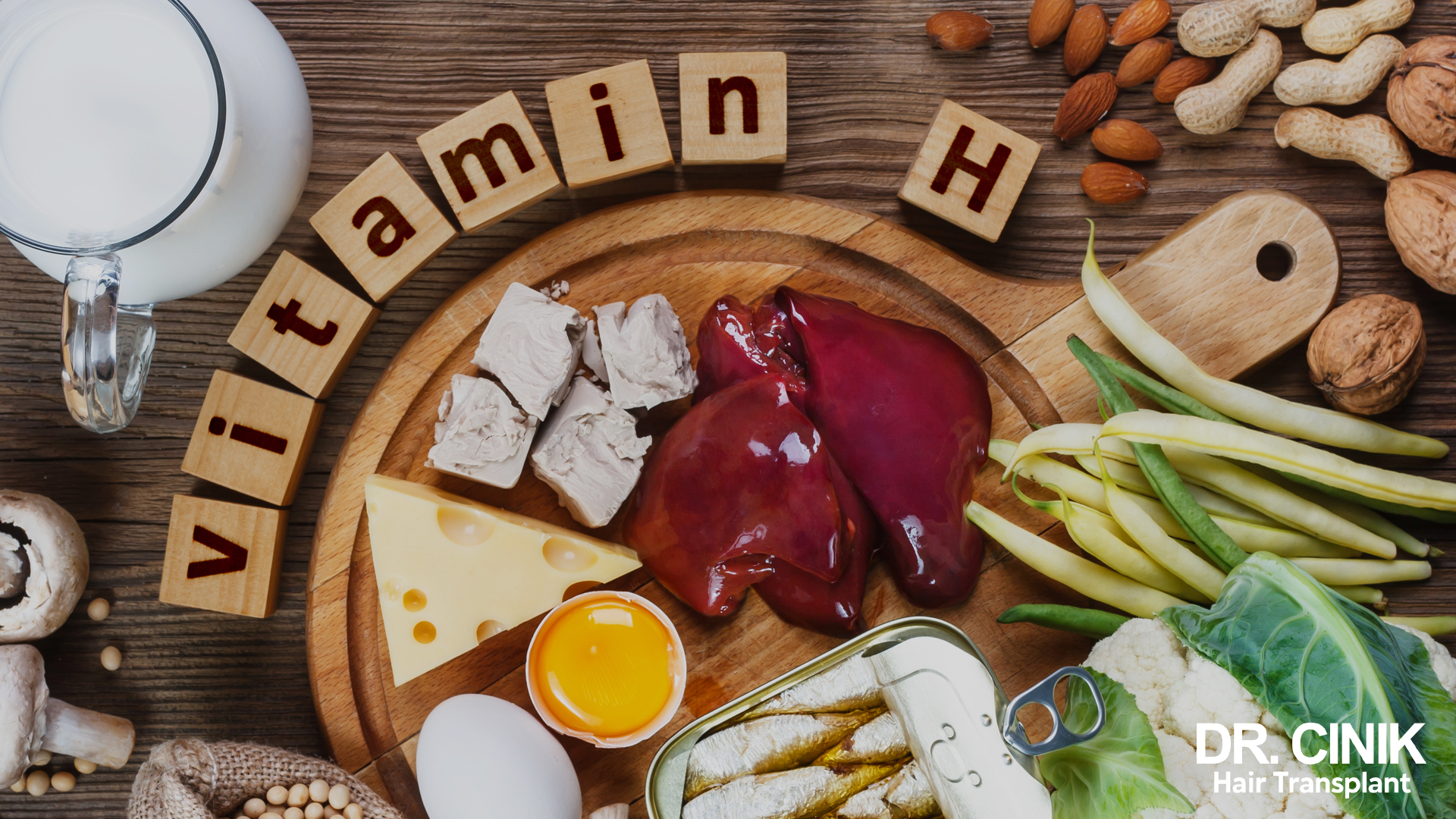
Biotin deficiency can lead to symptoms such as hair loss and brittle nails, suggesting its importance in preserving and strengthening hair fibre.
The emphasis on biotin after hair transplantation stems from its ability to strengthen existing hair and support the growth of new grafts. A biotin-rich diet or supplements can help maintain the growth momentum of newly implanted hair and ensure the development of robust and healthy hair.
What role does biotin play in the body?
Biotin, an essential B-complex vitamin, plays a multifunctional role in the body, being involved in several important metabolic mechanisms:
- Carbohydrate metabolism: Biotin acts as a co-factor for enzymes crucial in the metabolic pathways of glucose production. It facilitates the conversion of carbohydrates into glucose, which is then used to produce energy for the body.
- Protein metabolism plays a role in the metabolism of amino acids, the building blocks of proteins. Biotin helps synthesise and break down certain amino acids, processes necessary for maintaining muscle health and tissue repair.
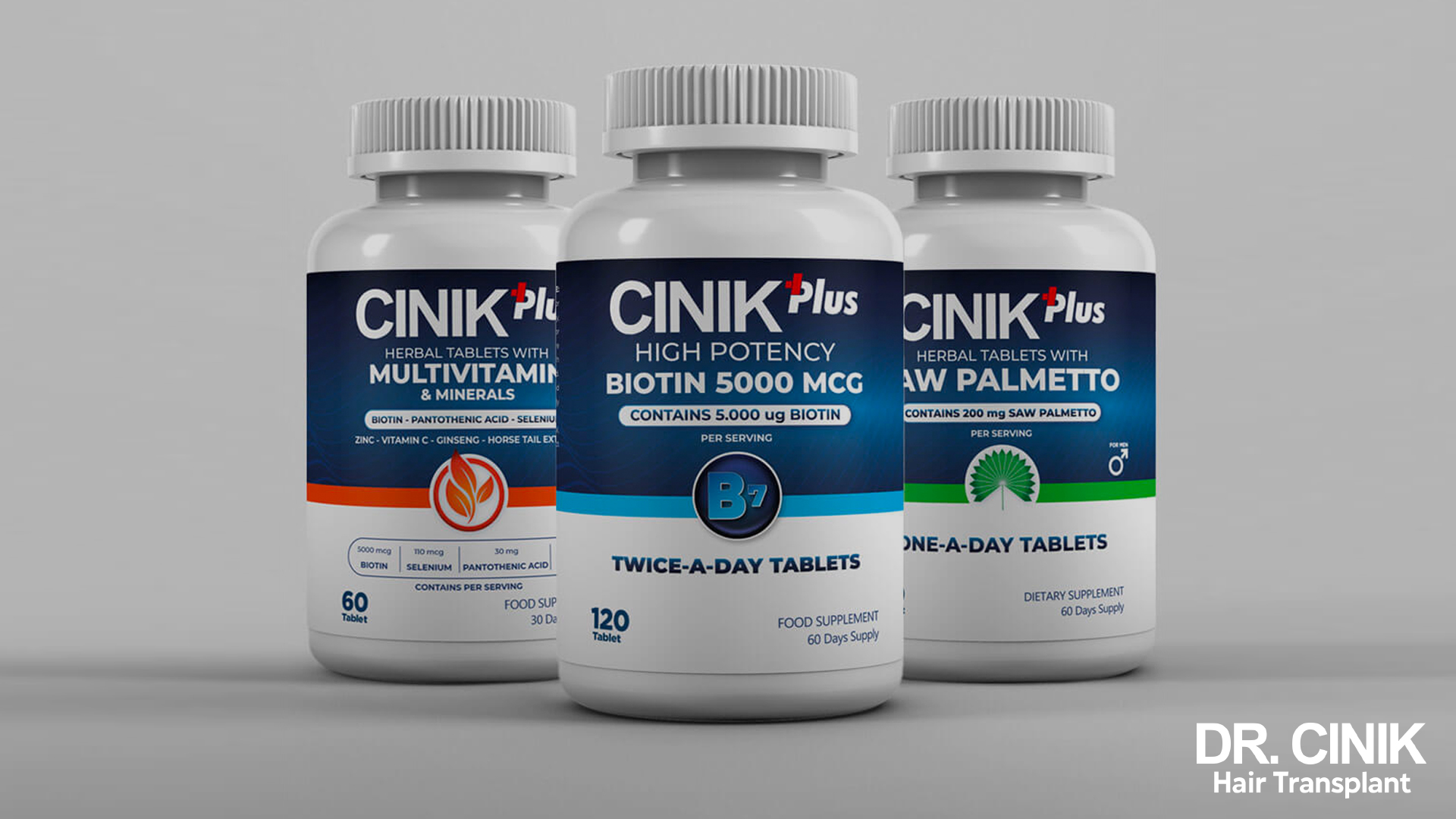
- Fat metabolism: This vitamin is essential for fatty acid synthesis. It helps ensure that the body makes proper use of fats and can form new cells, including skin and hair cells.
- Keratin production: Biotin is often associated with hair health because of its role in keratin production. Keratin is the main structural protein that makes up hair, skin, and nails. Adequate levels of biotin in the body can contribute to more robust, more resistant hair, an aspect of particular interest to those recovering from hair transplants.
What effect does biotin have on hair growth?
Biotin is a vital element supporting normal body function and strengthening the bodily systems, contributing to healthy hair. Its sufficient presence in the diet can help ensure that these metabolic processes run optimally, which is beneficial for healing and hair growth after a transplant.
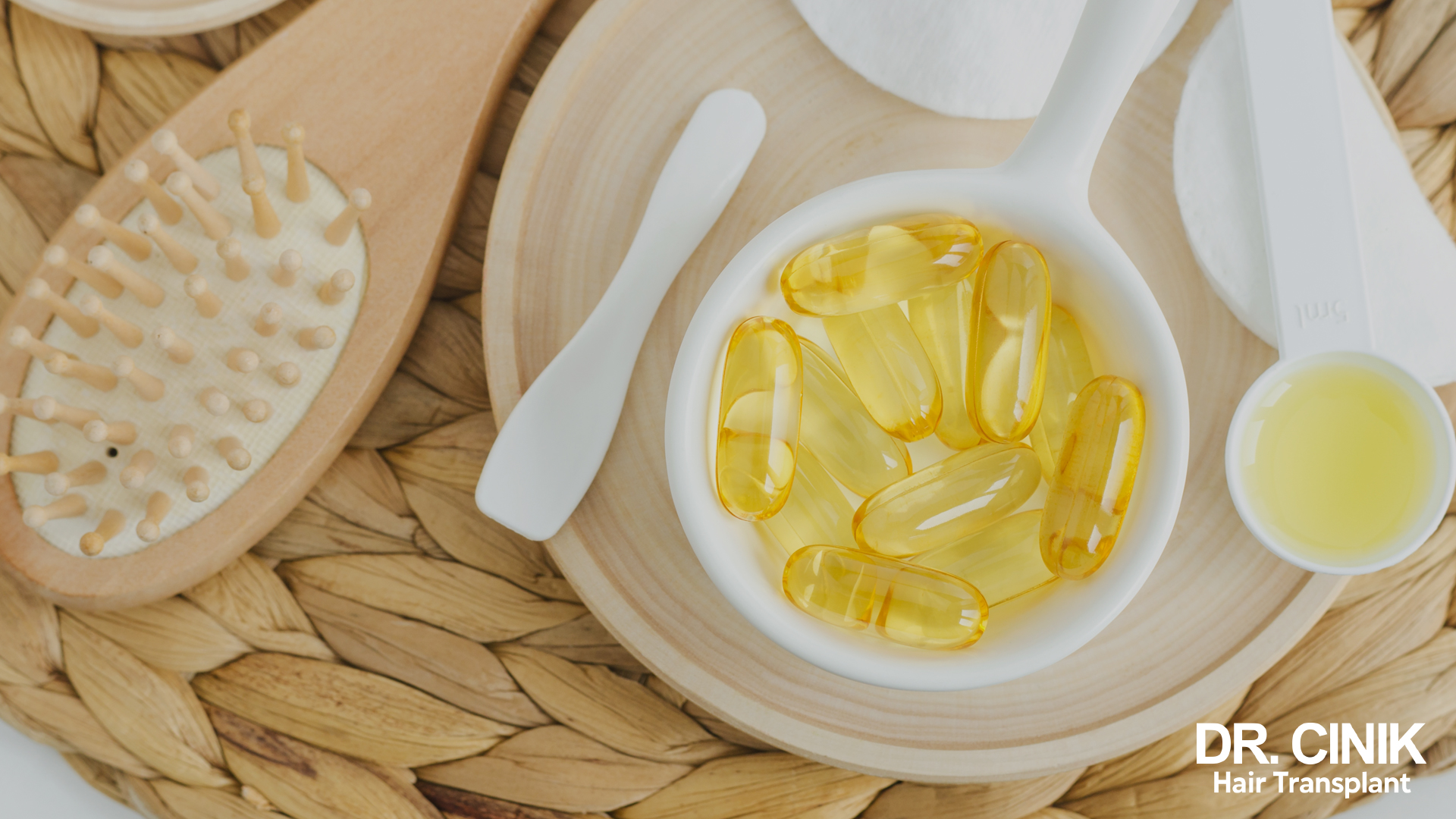
What are the side effects of high doses of biotin?
Biotin is often touted for its beneficial effects on hair growth, mainly thanks to two mechanisms of action:
- Stimulation of keratin production: Keratin is a fibrous protein that forms the main component of hair, skin and nails. By actively participating in keratin synthesis, biotin can help strengthen hair structure, making it less prone to breakage and potentially stimulating hair growth.
- Improved blood circulation: Although biotin does not directly stimulate blood circulation, good circulation is vital for transporting nutrients and oxygen to hair roots, essential for hair health and growth. A balanced diet, including B-complex vitamins, can help optimise blood circulation.
However, it is essential to note that the benefits of biotin on hair growth in non-deficient individuals need to be firmly established in the scientific literature. While biotin-deficient individuals may experience improved hair health after supplementation, there is no conclusive evidence that additional doses of biotin improve hair growth in those who already have adequate levels of this vitamin.
Please note: An adult’s recommended dietary intake of biotin is 30 micrograms per day. Dietary supplement dosages generally range from 500 to 5000 micrograms per day, although higher dosages are sometimes used under medical supervision.
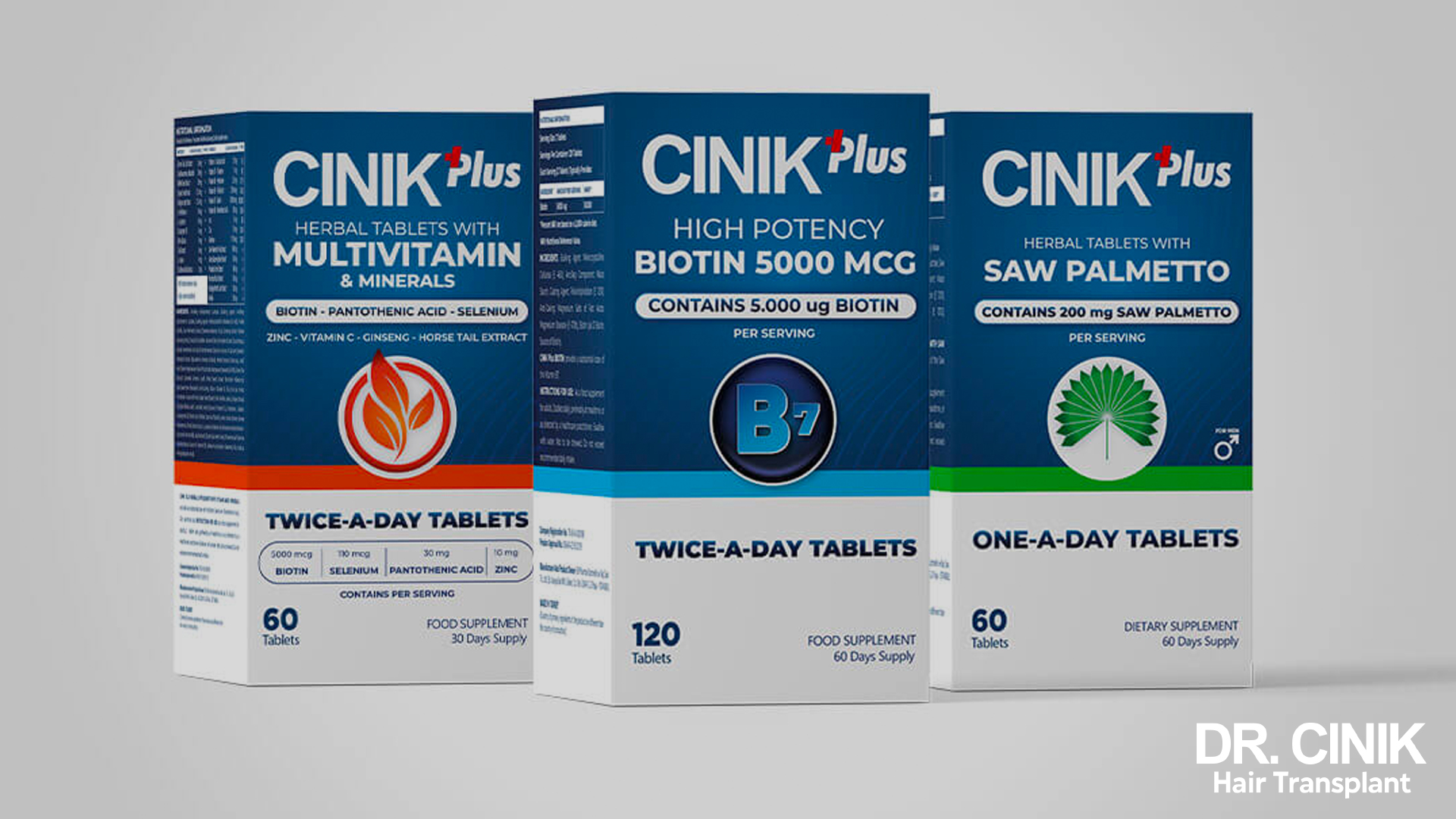
Caution is therefore advised when considering biotin as a treatment for hair growth, and it is always advisable to discuss its use with your surgeon, especially after a hair transplant, to ensure a safe and suitable approach.
What is the benefit of biotin after a hair transplant?
After a hair transplant, biotin can be beneficial for several reasons. It plays a role in blood microcirculation at the scalp level, an essential factor in supplying the necessary nutrients to transplanted hair follicles.
In addition, biotin contributes to the production of collagen, a vital skin protein that supports hair follicles and can improve the quality of post-operative healing.
Biotin’s stimulation of keratin production is essential, as this protein is the main component of hair, which can help strengthen hair and promote healthy regrowth.
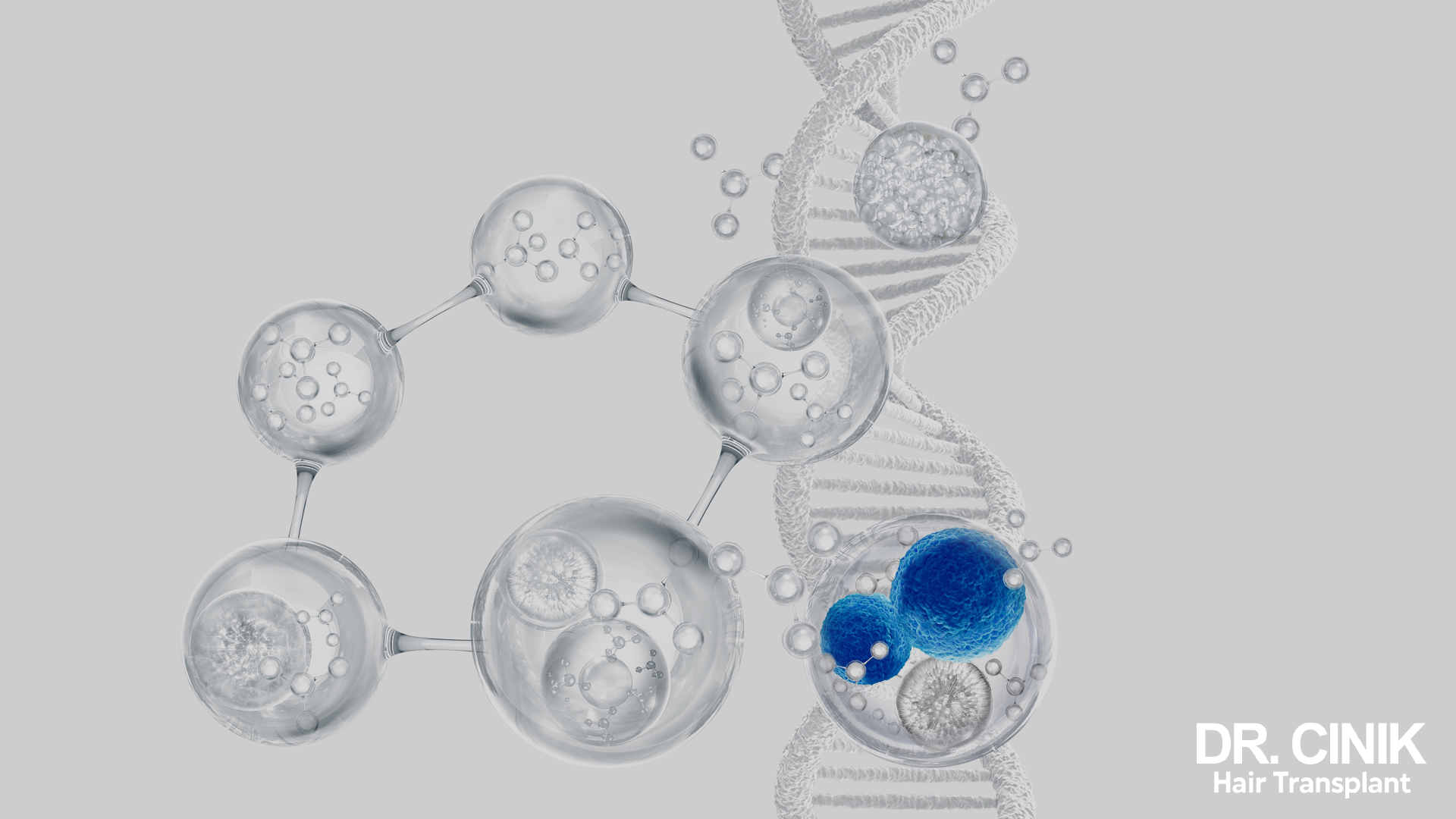
Finally, biotin positively influences the energy metabolism of cells, including those in hair follicles, which can support their optimal functioning and the overall healing process after hair transplantation.
In this way, biotin can be seen as a complementary support in post-transplant care to encourage the health and vigour of new hair.
Biotin: surgeon’s advice
It’s advisable to increase biotin intake through the diet by incorporating foods rich in this vitamin, such as liver, eggs, nuts and spinach. These foods contribute not only to good hair health but also to general well-being. In the case of biotin deficiency, often observed in heavy alcohol consumers, supplementation may be necessary.
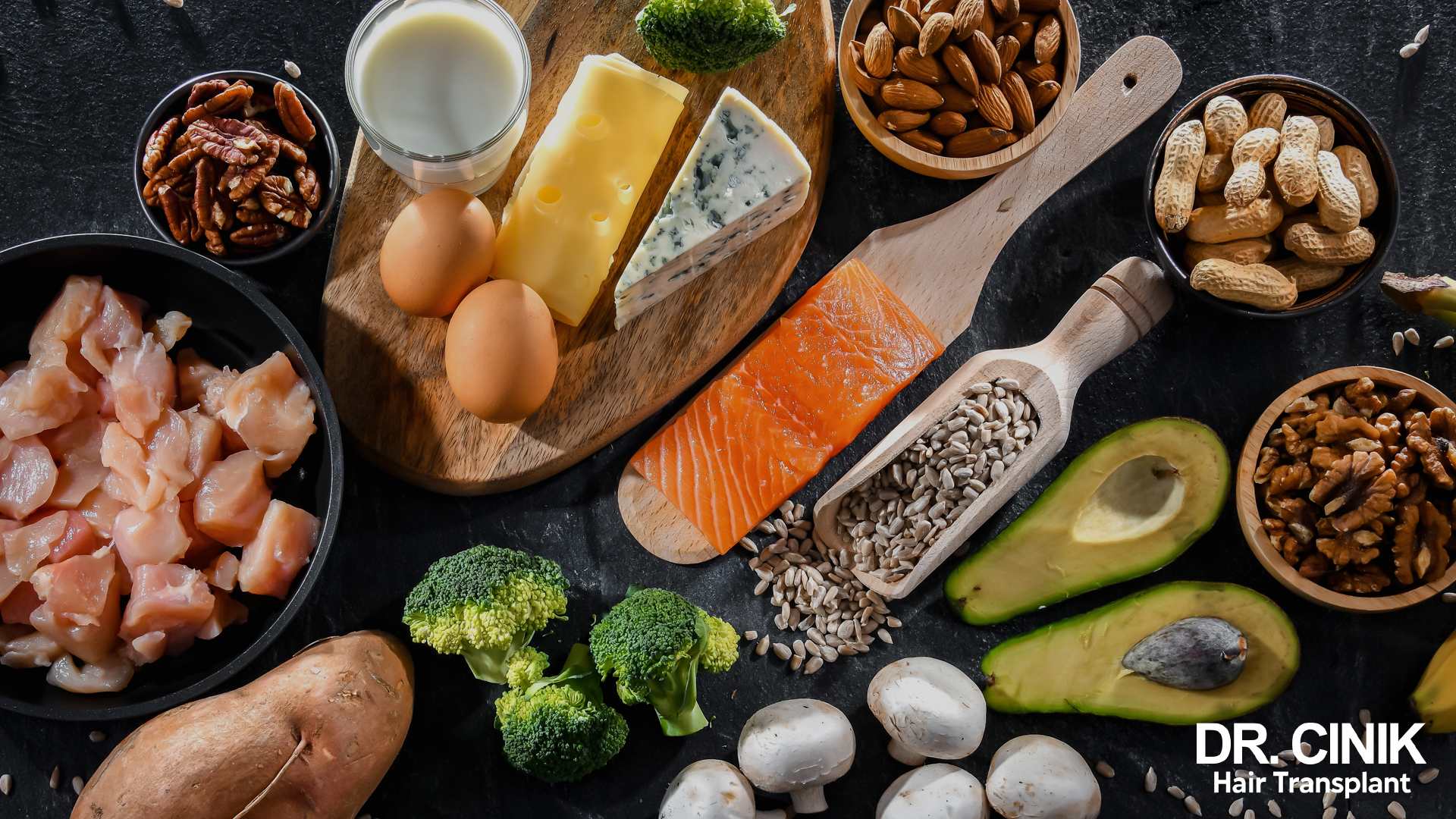
Taking biotin-based dietary supplements is risk-free for those without a deficiency and may benefit hair health.
Nevertheless, it’s also important to ensure a balanced diet to ensure adequate intake of iron, zinc, vitamins B9 (folic acid), B5 (pantothenic acid), C and other essential nutrients, as they all play a crucial role in maintaining healthy hair, especially after a hair transplant.
 en
en



